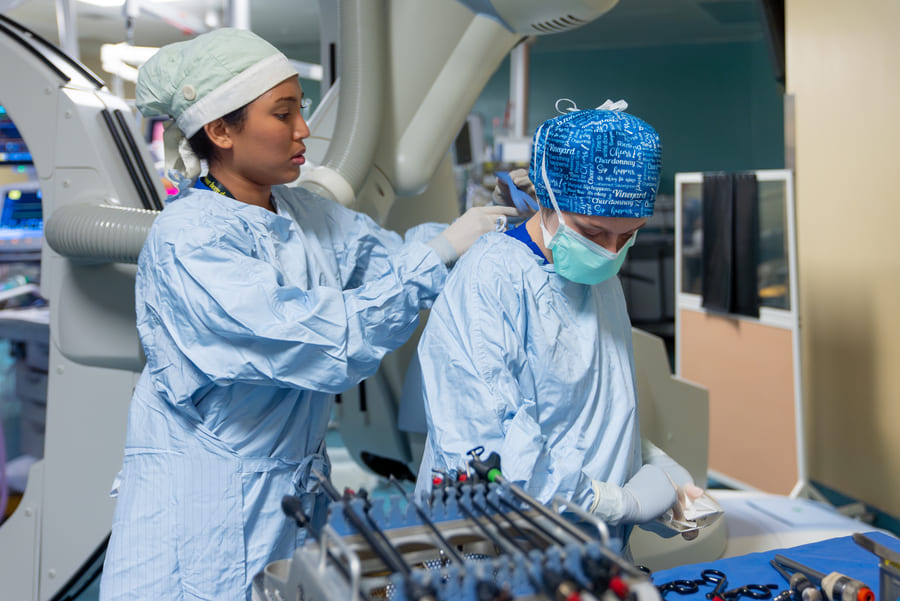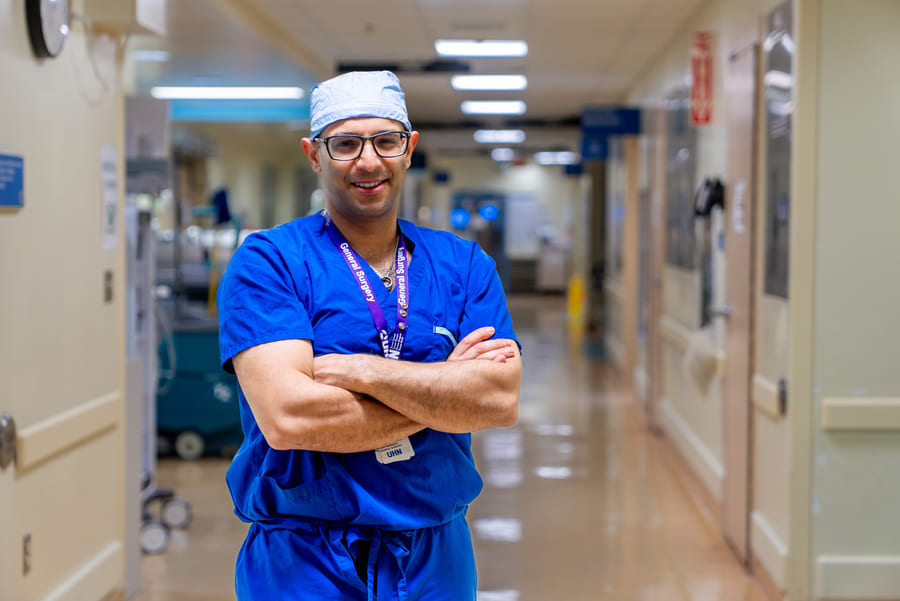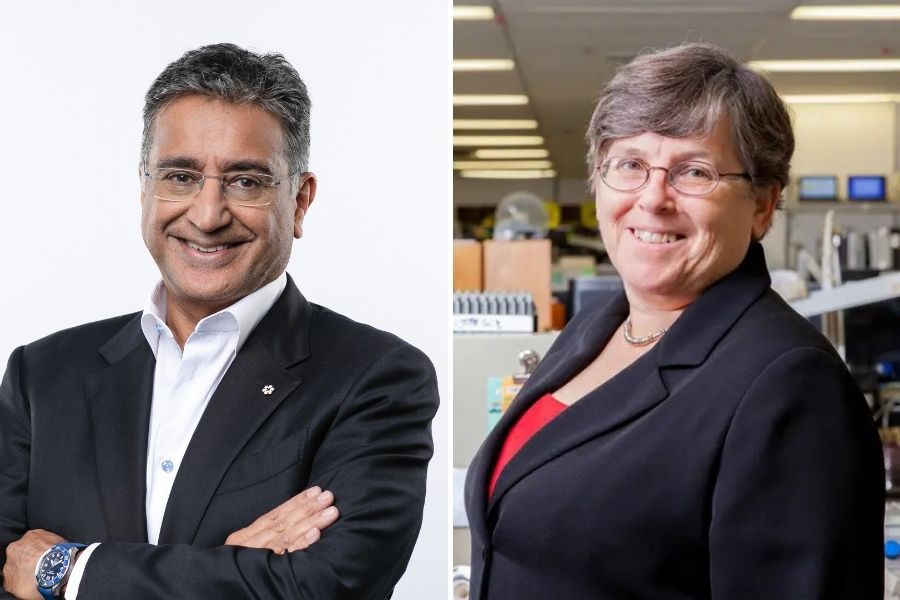At University Health Network (UHN), the future of surgery is taking shape. Through the development of groundbreaking artificial intelligence (AI) technology, UHN is revolutionizing surgical procedures with a focus on improving precision, safety and patient outcomes.
Successful surgeries depend heavily on the skill and judgement of the surgeon and even the most experienced surgeon can face challenges. Procedures require constant and critical decision-making in order to avoid causing complications (e.g. damaging vital structures, not removing the entire cancer). Currently, surgery is performed with limited real-time guidance or support, increasing the risk of human error and the potential for complications.

Leading surgical innovation with AI solutions
At UHN, Dr. Amin Madani, a surgeon in the Sprott Department of Surgery and Director of the Surgical AI Research Academy (SARA), is creating solutions using AI to improve patient safety. Engineers Stephanie Williams, Spencer Gable-Cook and Jimmy Qiu, along with computer scientists Dr. Michael Brudno and his team, collaborated with Dr. Madani and his multidisciplinary team to develop an AI-powered technology that providing surgeons with real-time navigation in the operating room.
Their system utilizes computer vision, a field of AI that trains computers to interpret and understand images, and machine learning algorithms to offer real-time guidance during surgery. For instance, one AI algorithm projects ‘go’ and ‘no-go’ zones onto video monitors – green means go and red means stop (similar to no-fly zones in aviation). This colour-coded system helps the surgeon identify safe and risky areas, significantly reducing the chance of error.
Currently, this system is being tested in clinical trials at UHN for gallbladder and colorectal cancer surgeries. However, the potential applications are vast, and there are plans to expand this technology to a wider array of surgical procedures.
“Our technology has the goal of making surgery safer by harnessing the power of AI to fundamentally improve surgical outcomes,” says Dr. Madani. “By minimizing the risk of errors, we can ensure better results for patients, leading to quicker recoveries and fewer complications.”

Turning local discoveries into global impact
This technology represents a significant advancement in global surgical care. Dr. Madani’s algorithm, the first of its kind, has been ‘trained’ using hundreds of hours of video of surgery performed by top experts. It marks a major leap in AI integration within the operating room, streamlining complex operations and enhancing patient safety.
Surgeons worldwide can use this technology to gain valuable experience and guidance from the work of top surgical experts. Unique, scalable and translatable, it can disseminate the knowledge and skills of expert surgeons to millions of patients around the world, including rural, remote and under-resourced areas.
As one of the many bold ideas from UHN’s visionary innovators, Dr. Madani and his team are redefining the future of surgical care for surgeons and their patients around the world.
UHNITED Behind the Scenes
Check out our Behind the Scenes as we explored the game-changing role of AI in health care with Dr. Tom Forbes and Dr. Amin Madani from UHN’s Sprott Surgery Department. Hosted by our CEO Julie Quenneville, the discussion delved into the exciting intersection of artificial intelligence (AI) and health care, and ways AI is becoming an increasingly important part of surgery in the operating room.

No one ever changed the world on their own but when the bright minds at UHN work together with donors we can redefine the world of health care together.


